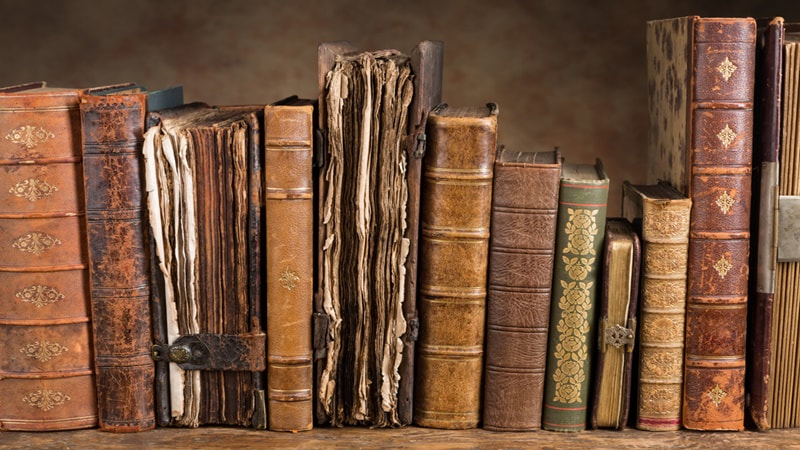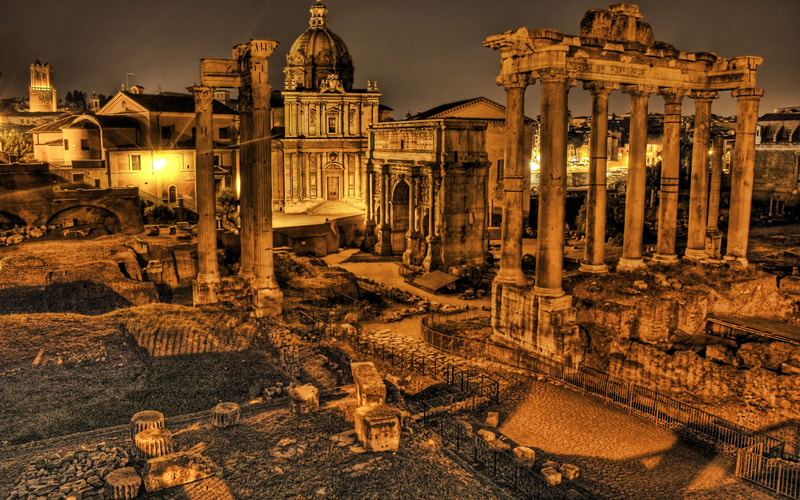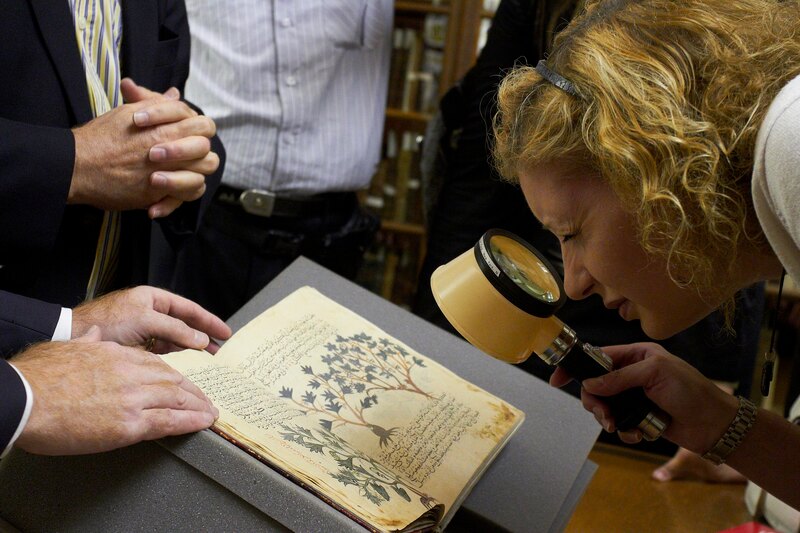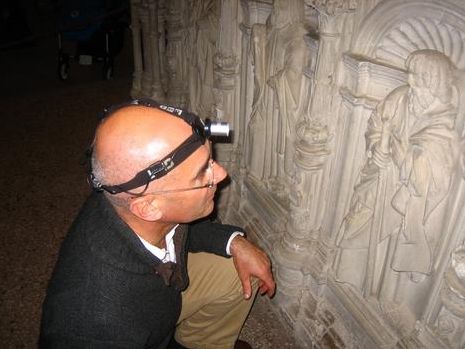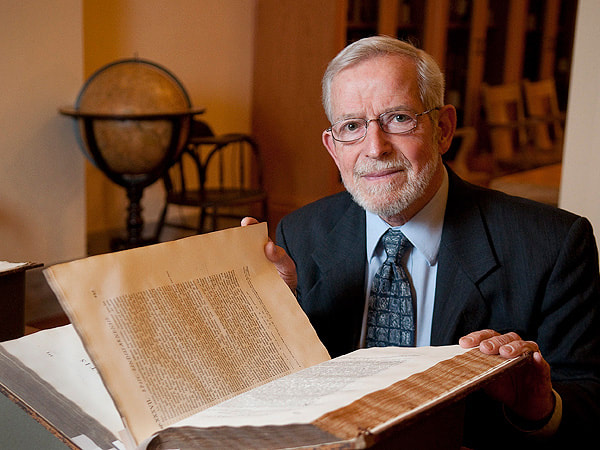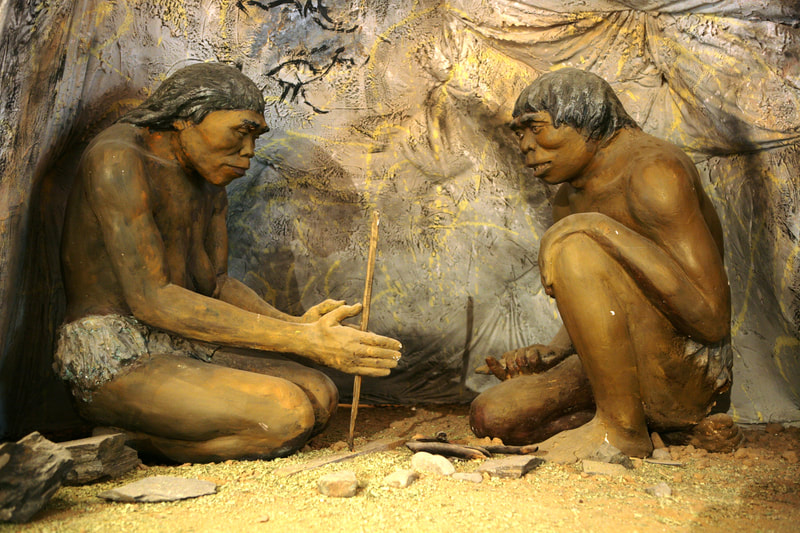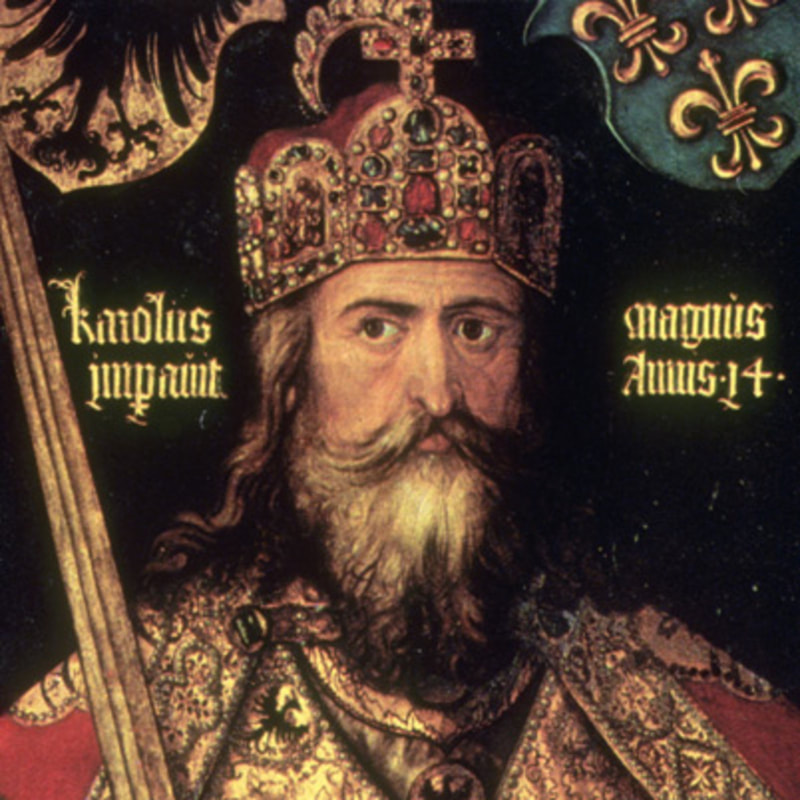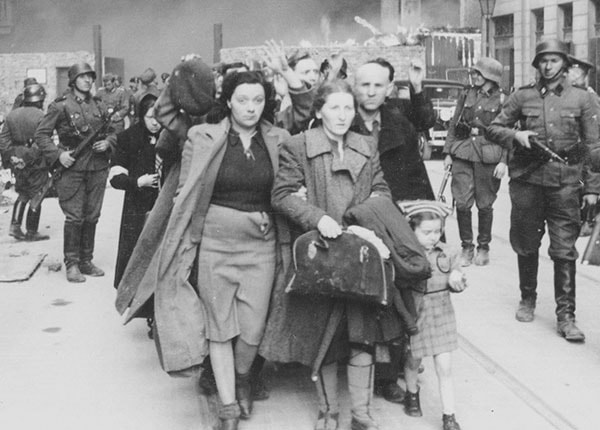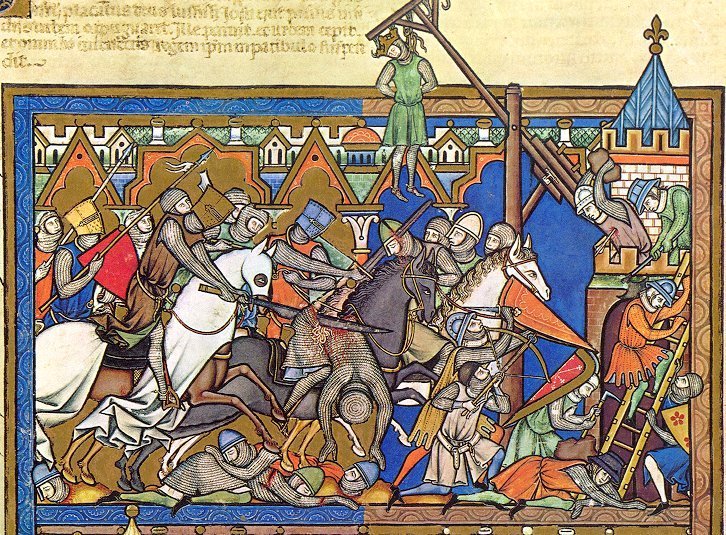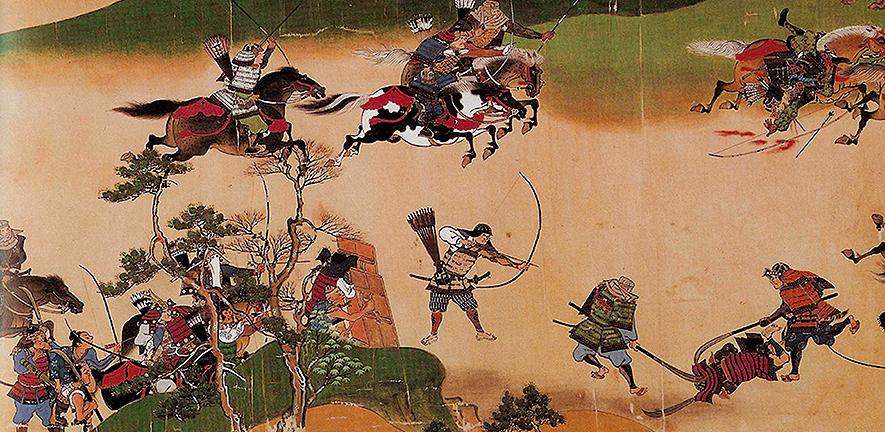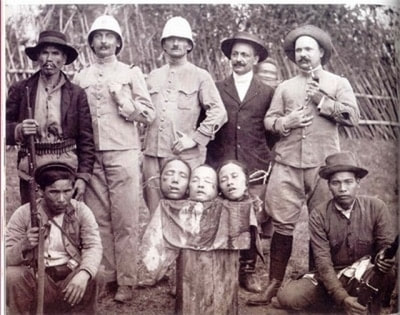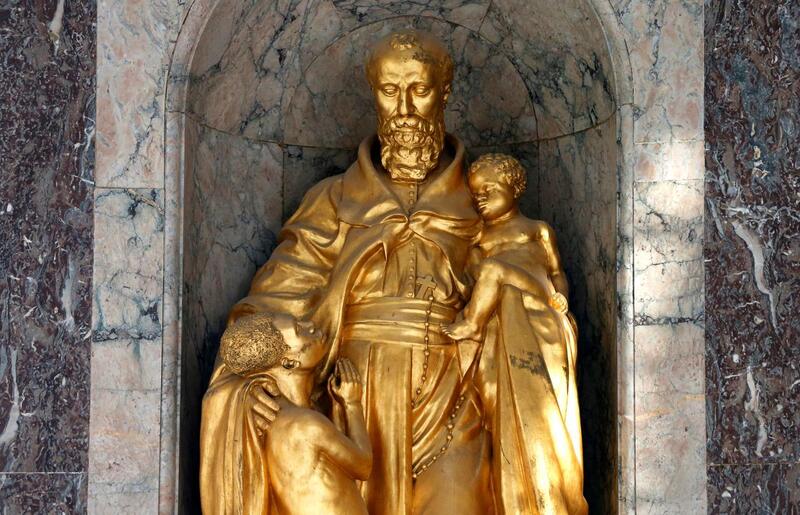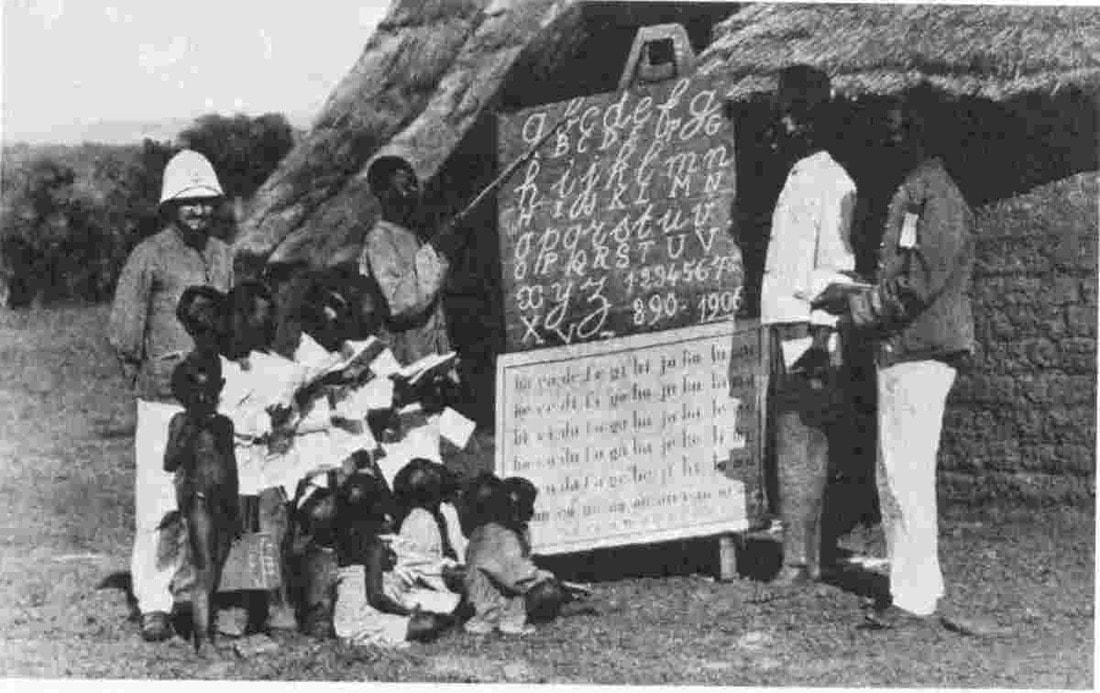Reflection: What kinds of things do historians try to acquire knowledge about?
Why does historical knowledge matter?
Why does historical knowledge matter?
|
|
History, its object of study and its methodology.
Historians want to gather and produce knowledge of the recorded past. The object of historical study is very different in nature from other areas of knowledge. The fact that history is by its very nature not present anymore, makes this area of knowledge quite unique. Historians cannot observe anything from the past in real time. This makes it much more difficult to claim something with certainty when we talk about the past. In this sense, you may wonder whether what it means when we talk about a historical fact. Although historians base their findings on evidence, the interpretation of this evidence is key to the creation of historical knowledge.
Reflection: Is certainty about the past more difficult to attain than certainty about the present or the future?
Reflection: Can the historian be free of bias in the selection and interpretation of material?
Lesson idea: The history of my country.
On selection, Ethics and Historical Knowledge.
ACTIVITY: if you had to place 3 objects that best represent the most significant aspects of the history of your country in a museum, what would those objects be and why?
Follow-up discussion:
Can the historian be free of bias in the selection and interpretation of material?
Do historians have a moral responsibility to try to ensure that history is not misused and distorted by people for their own ends?
On what criteria can a historian evaluate the reliability of their sources?
Follow-up discussion:
Can the historian be free of bias in the selection and interpretation of material?
Do historians have a moral responsibility to try to ensure that history is not misused and distorted by people for their own ends?
On what criteria can a historian evaluate the reliability of their sources?
Nevertheless, history is not merely subjective and sound historical knowledge is not purely speculative or only based on interpretation. Although historians cannot observe what happened in a laboratory nor do experiments to confirm their hypothesis, they have developed alternative methods to gather knowledge. Although these methods are different from the ones in other areas of knowledge, they are still valuable methods of inquiry. Historians gather documentary evidence in order to come to the best possible interpretation. Sometimes there is an overwhelming amount of evidence available to confidently claim that something is a historical fact. The very denial of these historical facts carries ethical implications. For example, denying that slavery or the holocaust existed would be foolish and morally wrong.
Ignoring historical facts and diminishing historical knowledge to the realm of mere imaginative interpretation can lead to a false sense of historical knowledge. Ignoring collective memory can be dangerous. After all, history can have a moral function, as we can learn from our mistakes in the past. In addition, denying people the right to mourn loss on a large scale can lead to bitterness and wrath.
Ignoring historical facts and diminishing historical knowledge to the realm of mere imaginative interpretation can lead to a false sense of historical knowledge. Ignoring collective memory can be dangerous. After all, history can have a moral function, as we can learn from our mistakes in the past. In addition, denying people the right to mourn loss on a large scale can lead to bitterness and wrath.
Although we should not deny historical facts such as the existence of the holocaust, the interpretative nature of history as an area of knowledge can be problematic. In addition, the resources available to historians may be biased or selective in nature. These resources can be limited in scope and sometimes they are so old that making sense of them is very difficult. Sometimes new findings of historical resources confirm a previous hypothesis, but sometimes these findings contradict previous knowledge and historical knowledge has to be revised. Historians may also use knowledge or methods from other areas of knowledge to complement the knowledge they create. Methods such as carbon dating, which originates from the natural sciences, can lead to increased accuracy regarding historical knowledge. Occasionally, knowledge regarding current human behaviour may help us interpret what drove human behaviour in the past.
Historians often use artefacts and sources from the arts such as paintings, books and architecture to paint a better picture of how the world was before. In that sense, there is a connection between History and The Arts as areas of knowledge.
Historians often use artefacts and sources from the arts such as paintings, books and architecture to paint a better picture of how the world was before. In that sense, there is a connection between History and The Arts as areas of knowledge.
Reflection: How might the existence of different historical perspectives be beneficial to historical knowledge?
Good historians aim to paint an accurate picture of the world as it once was, yet this is not always possible. We are often faced with a lack of historical data, biased records and politically influenced historical propaganda. There are plenty examples of history being rewritten to suit the purpose of people in power. We can shape our historical memory. Memory plays a substantial role as a tool we use to create historical knowledge. Many communities are keen to remember their past and some people feel that they need to 'make history' before they die. Language plays a substantial role in the recording of history and passing on of collective memory. Some knowledge communities draw on oral history, whereas others record data in writing or symbols. Much historical knowledge has been passed on through language via textbooks. The language of these textbooks is often emotionally coloured. Other (dominated) cultures were often represented as inferior and cruelties of imperial powers were either ignored or minimised. History has sometimes been taught as a single story, whereby the voices of marginalised groups, including those of women, were ignored. In older history textbooks, much history seems to be presented as fact. There is hardly any recognition of the interpretative nature if the discipline. Although the nature of history textbooks has changed over the years, you may still wonder on what basis the materials of your textbook/curriculum has been selected. What kind of historical events does your school, exam board or country consider important enough for it to be studied and why? Do you agree with this selection of events? The selection of events as well as the interpretation of evidence almost inevitably carry with them an element of subjectivity. The choice of history textbooks and what does or does not become part of a nation's history curriculum has been highly debated by politicians, authority figures, activists and educators. History lessons can be a powerful tool to shape and manipulate how we know.
Current history lessons (hopefully) allow for an exploration of different perspectives and possible interpretative difference when faced with the same "facts". It is important to understand that there are several possible issues with the interpretations of historical sources. The sources themselves may be biased and the interpretation of these sources can be subjective. In addition, you can select the sources to suit your agenda. However, the inclusion of a range of perspectives may lead you closer to genuine historical knowledge. The evaluation of the validity of historical knowledge claims may lead to the elimination of invalid and contradictory knowledge. Sometimes parts of the historical knowledge map needs to be re-written. A relativistic approach to history cannot generally be maintained (you cannot both claim the holocaust happened and that it did not happen). The inclusion of a wider range of sources may lead to more detailed knowledge maps. Although we should not be dogmatic regarding historical knowledge, a complete disregard for historical fact can also lead to inaccurate knowledge, with possibly severe ethical implications (as discussed above).
Current history lessons (hopefully) allow for an exploration of different perspectives and possible interpretative difference when faced with the same "facts". It is important to understand that there are several possible issues with the interpretations of historical sources. The sources themselves may be biased and the interpretation of these sources can be subjective. In addition, you can select the sources to suit your agenda. However, the inclusion of a range of perspectives may lead you closer to genuine historical knowledge. The evaluation of the validity of historical knowledge claims may lead to the elimination of invalid and contradictory knowledge. Sometimes parts of the historical knowledge map needs to be re-written. A relativistic approach to history cannot generally be maintained (you cannot both claim the holocaust happened and that it did not happen). The inclusion of a wider range of sources may lead to more detailed knowledge maps. Although we should not be dogmatic regarding historical knowledge, a complete disregard for historical fact can also lead to inaccurate knowledge, with possibly severe ethical implications (as discussed above).
|
|
History and TOK, lecture by history teacher David Griffiths
Your browser does not support viewing this document. Click here to download the document.
| __d_griffithstok_lecture_on_history.pptx | |
| File Size: | 1540 kb |
| File Type: | pptx |
|
|
How to think like a good historian?
|
|
|
|
|
Writing history and perspective
|
|
|
|
|
Creating a memory of a past that never existed: Curtis Documentary
Reflection: Do historians have a moral responsibility to try to ensure that history is not misused and distorted by people for their own ends?
Making connections to the core theme, as suggested by the TOK Guide
- How can the methods of the historian help us to evaluate claims made in the media today?
- How can we gauge the extent to which history is being told from a cultural or national perspective?
- Is it possible to know who we are without knowledge of the past?
Suggested Knowledge questions on History
Ackowledgement: these knowledge questions are taken from the TOK Guide, 2022 specification.
|
Scope
|
Perspective
|
|
Methods and tools
|
Ethics
|

